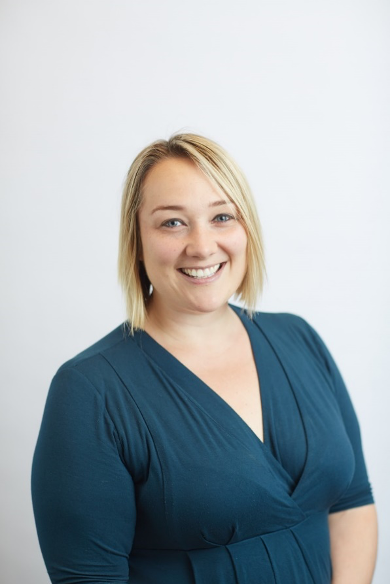How have Business Schools been working to move past the pandemic, both in the short and longer term? Kathleen Riach, Professor of Organisation Studies at Adam Smith Business School, offers her perspective
An initiative designed to help students at Adam Smith Business School, University of Glasgow transition to an online world of work has been rolled out to a wider audience of alumni and partners, says Professor of Organisation Studies, Kathleen Riach.
This is just one example of the School’s response to the challenges presented by Covid-19. In this interview, Riach also discusses the need – and opportunity – for the sector to learn lessons from the speed of response to the pandemic’s outbreak and outlines her belief that global and ‘inward’ strategies are not dichotomous ideas.
Business Impact’s fifth edition in print turned to the BGA network to canvas the collected thoughts of Business Schools based in India, Scotland, Puerto Rico, Poland, and the Netherlands to find out how they expect the pandemic to affect their outlook, strategy and offerings, both now and in the future. Given in June 2020, the below interview offers greater detail of Riach’s perspective on how the emerging situation and challenges had been approached at Adam Smith Business School to date.
The Covid-19 pandemic has, in many cases, led to a greatly increased uptake of online learning technology in business education. Although this has been a short-term necessity, does it present the sector with any opportunities in the longer term?
There is absolutely a need to think about this not as an erroneous year, but rather how we can build on some of the creative virtual teaching and learning practices that have sprung up all around our Business Schools.

Part of this is thinking about how we share what we are doing in lieu of the watercooler and corridor conversations we usually have with colleagues. It is also about ensuring that in the longer term we encourage the creation of ambidextrous learning assets that can enhance our students’ learning experiences in a number of settings, whether that is online, blended, or predominantly face to face.
I also think that it has made us more open to thinking about asynchronous and synchronous learning as not an either/or conundrum and that our curricula might want to be more flexible in this regard, which is a good thing given that more and more of our students are now balancing multiple roles as workers and carers as well as learners.
At the same time, I think there has been a renewed appreciation of what being physically present provides within an educational setting and that there is a qualitative aspect that is very difficult to replicate through other media. Moving forward, it provides us with an opportunity to think about how we use the valuable face-to-face time we have with learners to support and create a transformative learning experience.
Going beyond the pandemic’s immediate impact, have the year’s developments influenced your School’s strategy with regards to the use of online technology?
It’s really important not to underestimate the amount of upskilling and sheer number of hours of labour that has been put into this by faculty and professional staff, and that this effort is going to continue as we seek to create sustainable teaching and learning practices over the coming years. We need to consider this not simply as a matter of online technology, but also a matter of wellbeing and ensure we are promoting practical ways that all Business School staff do not carry the health hangovers of this period of intensive work into the future.
However, amid the exhaustion there has also been some excitement to see just how quickly at Glasgow – an institution that is more than 550 years old – we can change and adapt, which can sometimes be a challenge in any large organisation.
I also think it’s important that now the initial ‘rush’ of pivoting online has occurred, we have the opportunity to think a bit more strategically about not just online technology, but also how we can learn lessons from what was a very rapid response to a crisis. Strategically speaking, how might we be able to learn lessons surrounding quickly enabling and mobilising in ways that help us proactively address broader challenges in the business world and beyond?
The global financial crisis of 2008 has been linked to an increase in applications to Business Schools, as people decided the time was right to reassess their career goals and pursue personal and professional development. Do you think the Covid-19 pandemic could have a similar impact?
Any seismic global event is undoubtedly – and hopefully – going to make people reflect on what they do and why, and I think we will see an increased interest in people taking this time to recalibrate career goals.
What changes do you anticipate to the number and profile of those applying to programmes at your Business School over the coming three years? Do you envisage greater interest in any individual programme(s) on offer?
Apart from having to navigate the logistical challenges that may face our international students, what we see is that students are very aware of how we are proactively responding to and engaging with current events, from sustainability to global inequality.
Business Schools are often encouraged to play a greater role in their local and regional communities. Has Covid-19 inspired any new events, activities or initiatives with this in mind?
Across the School we have seen our staff leverage their existing research expertise to provide thought leadership and new research projects that speak directly to some of the economic, work-related and social issues that circulate around Covid-19.
We have also decided to offer our DigiGallus initiative – an online programme developed to help students transition to an online world of work during lockdown – to alumni and key partners with the Business School. The traction we got from students in the School with DigiGallus has also provided the opportunity to develop an online mentoring scheme between our students and members of the local community who are shielding. We are hoping that this not only provides a service to local residents to navigate online living, but also gives students the opportunity to develop skills in leadership and intergenerational learning during the Summer break when many of their internships and workplaces are suspended or remain closed.
Leaving aside Covid-19, which single new programme, course, or initiative are you most excited about and why?
We just launched our MSc Financial Technology programme which is an interfaculty postgraduate degree with computing science, and law. Students from a variety of disciplines learn practical and conceptual skills, then have the opportunity for either a six-week industry placement or a startup pathway in an incubator developing an investment plan. It’s exciting to see the potential.
But beyond this, what we have seen in Covid-19 is a renewed thinking about how all our course provision is going to respond to the seismic changes we see in the world, and teaching staff are taking this opportunity to think about how we make sure that the skills we develop and way we teach is relevant to the world we are now in.
This might sound a rather obvious point, but as academics we are also all voracious learners, and listening to the different types of conversations with colleagues about exploring and developing provision in our courses that will support and equip our students to face their future worlds of work is pretty invigorating.
Do you think Business Schools will need to focus more inwardly (and therefore less ‘globally’) than they have been in their teaching in order to address industry needs post-Covid-19? If so, could this have an impact on your School’s international exchange and partnership options?
There are certainly practical challenges and possibly uncomfortable conversations that have to take place surrounding what it means to be a global Business School. Covid-19 has perhaps accelerated and brought to the fore a lot of the concerns many already had about the ways and means we think about being international and paying attention to all of our key stakeholders.
However, I don’t think global and inward strategies are dichotomous ideas. Rather, it is about thinking what our students and ourselves achieve from initiatives such as international exchanges and partnerships in their current form, and thinking creatively about how we can maintain and strengthen these aspects in a variety of ways, as well as considering how these competencies and benefits can be garnered through a more intimate engagement with, and contribution to, local economies.
For example, at a university level, our institution is currently thinking about civic engagement as a strategic priority and partnering with local and national government on very practical initiatives. One of the things that struck me when I came to University of Glasgow was that it certainly is ‘home to the world’ in many ways and that students who come here very quickly adopt the city. So, I think it’s more a case of developing these relationships further, rather than an ‘inward’ turn.
Do you anticipate Covid-19, and related issues, influencing course offerings within the programmes on offer from your School?
In many ways, Covid-19 has only further legitimised the direction we were already moving in terms of our provision. We have recently become advanced signatories of PRME and with COP26 being hosted in Glasgow, we already had the momentum of thinking about a different ecology of business education. At the same time, as a research-led School, provision is a ground-up process and courses are led by the expertise of faculty. I think it’s very important that we don’t simply begin introducing reactionary courses that speak directly to a theme per se, but rather think about what capabilities and skills students will need as a result of these global changes and how we can best foster these in our curricula.
There is an argument that the economic challenges that Covid-19 will bring represent a huge and much-needed opportunity for Business Schools to reinvent their value proposition for the better. What would you most like to see change in the business education industry?
We must acknowledge that this has been – and will continue to be – a devastating event for the world that has disproportionately affected certain parts of the population. But using it as a productive moment to think how we can do something is vital.
Business Schools collectively are a powerful force and thinking not only about our multiple accountabilities but also our potential to be incubators for change is so important, especially as we are at the beginning of the United Nations’ ‘Decade of Action’. In my role, one of the aspects we are going to focus on is how we ensure stewardship is central to the curriculum. If we really want to support our students becoming change agents in their future workplaces and the economy more broadly, then we need to ensure they don’t feel they are passive or mute agents in the current systems and ways of thinking.
Kathleen Riach is Professor of Organisation Studies at Adam Smith Business School, University of Glasgow, Scotland, having previously held faculty and visiting positions in Australia, Sweden and Germany. She is the School’s inaugural lead of Responsible and Sustainable Management, with her own research focusing on organisational age and gender inequality.




























